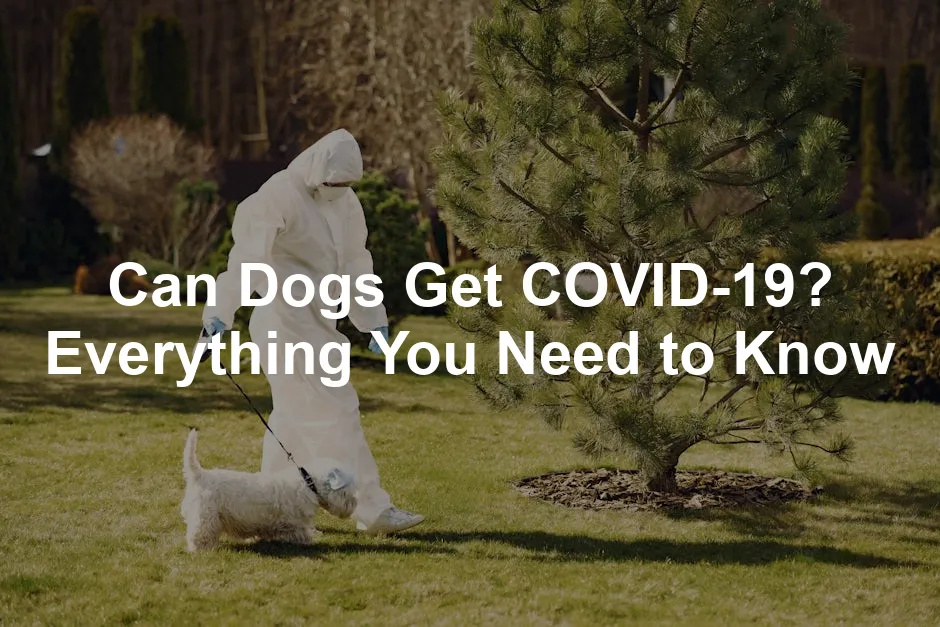Introduction
In a world where we’re constantly washing our hands and wearing masks, pet owners might find themselves asking: Can our furry friends catch COVID-19? If you’re imagining a scenario where your dog is wearing a mask and socially distancing from the neighbor’s cat, you’re not alone! COVID-19 has raised numerous questions about our pets and their health. This blog will unravel the science behind COVID-19 and its impact on dogs, revealing vital facts, risks, and precautions every pet owner should know. Let’s wag our tails through this topic and uncover the truth about dogs and COVID-19!
The SARS-CoV-2 virus, which causes COVID-19, primarily spreads through close contact among humans. However, evidence suggests that dogs can catch the virus from infected humans, although the chances of them becoming severely ill are quite low. Most infected dogs show mild symptoms or none at all, making it a rare occurrence.
As pet owners, it’s imperative to stay informed and take the necessary precautions to protect our furry companions. Recent studies indicate that while dogs can contract COVID-19, the risk of transmission is significantly lower than that among humans. This brings us to an important point: knowledge is power, and understanding how to keep our pets safe is crucial.
In this blog post, we’ll explore the mechanisms of COVID-19 transmission, the symptoms to watch for, and best practices for keeping your dog healthy during these unprecedented times. So grab a snack (not for your dog, of course), and let’s get to the nitty-gritty of COVID-19 and its canine companions!
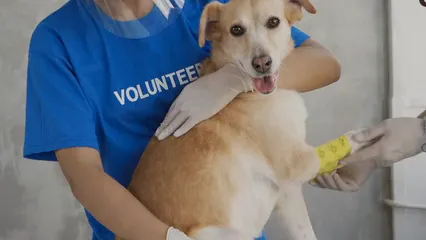
Summary
As the pandemic continues to unfold, many pet owners are concerned about the risk of their dogs contracting COVID-19. Recent studies show that while dogs can indeed get infected, it’s relatively rare, and most cases are mild or asymptomatic. The primary mode of transmission is from humans to dogs through close contact, making it crucial for infected individuals to limit their interactions with pets. Unlike the widespread human infection rates, confirmed COVID-19 cases in dogs remain low.
This article will explore the following key points:
- The mechanics of COVID-19 transmission and its animal hosts.
- Symptoms and health implications of COVID-19 in dogs.
- Recommendations for pet owners, especially those who test positive.
- The rarity of severe cases in dogs and the importance of veterinary consultations.
- The scientific community’s ongoing research into COVID-19 and its variants affecting pets.
Stay tuned as we break down these topics and arm you with the knowledge to keep both you and your furry friend safe!

Can Dogs Get COVID-19?
Overview of COVID-19 and Its Origins
COVID-19 is caused by the SARS-CoV-2 virus, a member of the coronavirus family. Coronaviruses are notorious for causing illnesses in both humans and animals. This particular virus was first identified in late 2019 in Wuhan, China. Researchers believe it likely originated from bats, possibly passing through another animal before gaining the ability to infect humans.
SARS-CoV-2 spreads primarily through respiratory droplets when an infected person coughs, sneezes, or talks. This human-to-human transmission is the main concern during the pandemic. However, the virus can also jump from humans to pets, including dogs and cats, albeit infrequently.
Zoonotic diseases, like COVID-19, highlight the intricate connections between human health and animal health. The implications of these diseases are serious. They remind us that our furry companions are not entirely immune to the pathogens that affect us. While the risk remains low, awareness of how diseases can cross species is essential for pet owners.
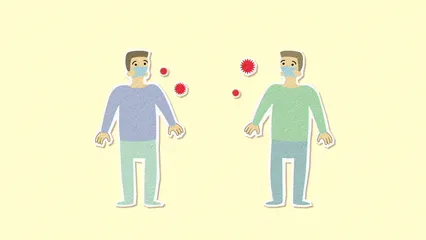
Can Dogs Contract COVID-19?
Yes, dogs can contract COVID-19, but it’s a rare occurrence. Several studies have confirmed instances of COVID-19 infection in dogs, mainly through close contact with infected humans. In fact, a notable study indicated that about 41% of dogs living with COVID-positive owners tested positive for antibodies against the virus, suggesting prior exposure.
Despite these findings, the infection rates among pets remain significantly low compared to humans. According to a review, only a small fraction of dogs—less than 1% in some studies—have shown positive results for SARS-CoV-2 without a known exposure.
Noteworthy case studies include dogs belonging to confirmed COVID-19 patients. For instance, a few dogs tested positive after their owners displayed symptoms of the virus. Most of these canines exhibited mild symptoms or none at all, resembling a typical cold rather than a severe illness.
Overall, while the possibility exists for dogs to contract COVID-19, it’s not a widespread issue. The majority of infections in dogs are mild or asymptomatic, reassuring pet owners that they need not worry excessively about their furry friends catching the virus.
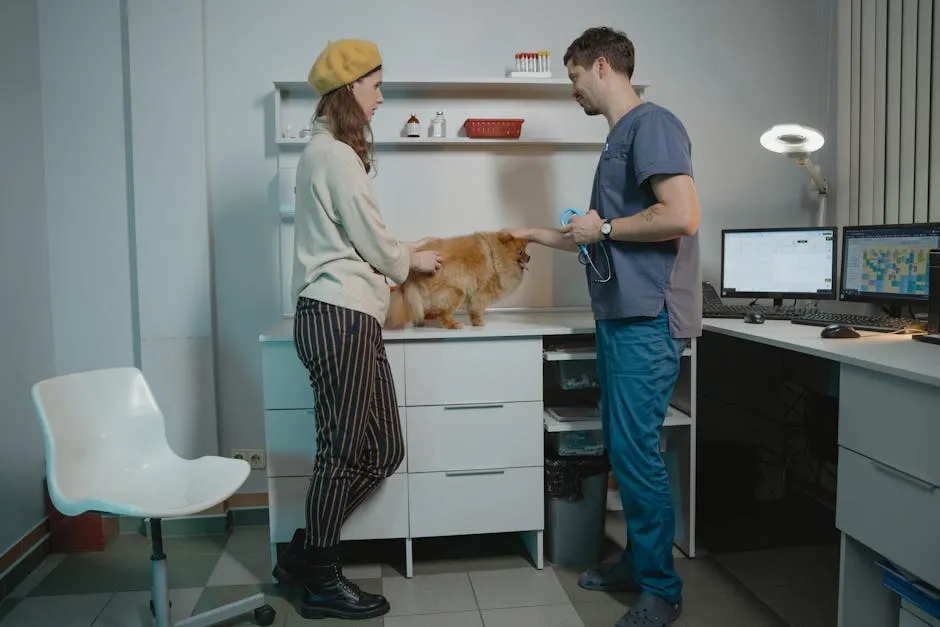
Symptoms of COVID-19 in Dogs
Common Symptoms
So, what should you look out for if you suspect your dog might have caught a case of the sniffles—COVID style? While most of our furry friends remain asymptomatic, some might display mild symptoms. Here’s a quick rundown of the common symptoms observed in infected dogs:
- Coughing: If your pup starts to sound like a tiny seal, it might be time to take note.
- Respiratory issues: Watch for labored breathing or unusual wheezing.
- Lethargy: Is your four-legged friend suddenly less enthusiastic about their daily zoomies? This could be a sign.
- Sneezing: Frequent sneezing? Sniffles could be in play.
- Nasal discharge: If your dog’s nose is a faucet, keep an eye on it.
- Loss of appetite: If they’re turning their nose up at dinner, something’s up.
While these symptoms can be concerning, it’s important to remember that many dogs remain asymptomatic. That’s right! They may be carrying the virus without a single sign of illness. It’s a bit like having a sibling who can eat all the snacks without gaining an ounce—frustrating, but also a little miraculous!

Given the potential for asymptomatic cases, pet owners should maintain a watchful eye on their furry friends, especially after known exposure to COVID-19. If you notice any of the above symptoms, it’s wise to consult your veterinarian to discuss your concerns.
When to Consult a Veterinarian
When should you ring up your vet? If your dog starts to exhibit any symptoms mentioned above, it’s time to take action. Here’s a helpful guide:
- Immediate Consultation: If your dog shows significant respiratory distress, like difficulty breathing or persistent coughing, call your vet right away. These symptoms can escalate quickly and require immediate attention.
- Mild Symptoms: For mild symptoms, such as a bit of sneezing or lethargy, keep a close watch. If symptoms persist for more than a day or two, reach out to your veterinarian for advice.
- Post-Exposure Monitoring: If your dog has been in contact with a confirmed COVID-positive individual, it’s crucial to monitor them closely for signs of illness. Even if they appear fine, a quick consultation can provide peace of mind.
Veterinarians are equipped to evaluate your pet’s condition and determine the best course of action. Remember, early intervention can make all the difference in your dog’s recovery, so don’t hesitate to seek professional guidance!
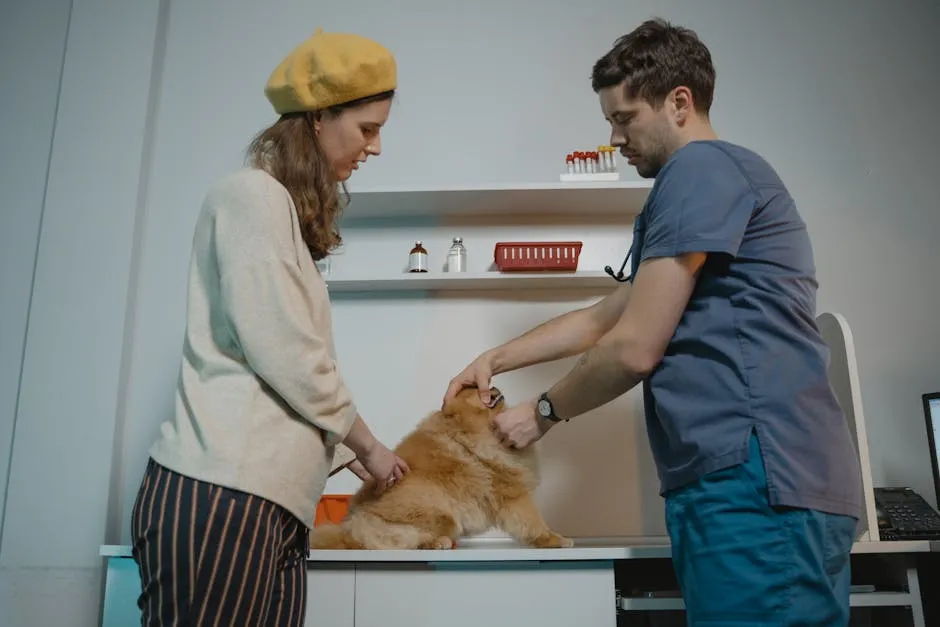
Precautions for Pet Owners
Best Practices if You Have COVID-19
If you find yourself in the unfortunate position of testing positive for COVID-19, your furry friend’s health should still be a priority. Here are some best practices to follow:
- Limit Contact: Try to keep a safe distance from your pet. If possible, have another member of your household care for them during your illness. Your dog might not be thrilled about the quarantine, but it’s for their safety—and yours!
- Wear a Mask: If you need to interact with your dog, wearing a mask can help reduce the risk of transmission. Think of it as a stylish accessory for your dog-walking outfit. Plus, why not add some flair with a Dog Face Mask to keep both you and your pup safe!
- Hygiene is Key: Wash your hands thoroughly before and after handling your pet. Use soap and water—hand sanitizers might not be safe for your fur babies.
- Avoid Sharing Food: This is not the time for a shared snack moment. Keep your treats to yourself while you recover.
- Keep Surfaces Clean: Disinfect commonly touched surfaces. Your dog’s toys, food bowls, and bedding should be cleaned regularly. They might not appreciate the extra scrubbing, but cleanliness is next to dogliness!
By following these precautions, you can help protect your pet while also taking care of your health. Remember, your dog relies on you for their well-being, so staying informed and proactive is essential!
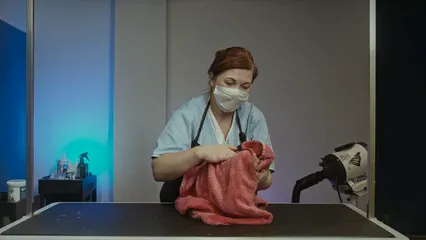
Keeping Your Dog Safe
Keeping our furry pals safe during a global pandemic is no laughing matter. Though the risk of dogs contracting COVID-19 is low, it’s wise to take precautions. Here are some tips to limit exposure and protect your dog from potential infection.
First, if you test positive for COVID-19, consider isolating from your pet. It’s like being grounded, but without the snacks! Have someone else in your household care for your dog. If that’s not possible, wear a mask while interacting with them. Remember, your dog doesn’t need to be a part of your isolation party.
Next, maintain good hygiene. Wash your hands thoroughly before and after touching your dog, their food, or their toys. Think of it as a mini spa day for your hands! Avoid sharing food or letting your dog lick your face—sorry pup, no kisses for now.
Social distancing is also crucial. Keep your dog away from crowded places. Dog parks might be fun, but they can be a hotspot for germs. Opt for walks in quieter areas where you can keep a safe distance from other dogs and their humans. It’s like taking your dog to a serene beach rather than a bustling boardwalk—much more relaxing!
When out and about, use a leash to keep your dog close. This way, you can control their interactions with other pets. Also, if you’re meeting with friends or family, keep your dog at home. After all, they don’t need to hear your stories about how you conquered the couch during lockdown.
Lastly, monitor your pet’s health closely. If they show any symptoms, like coughing or lethargy, reach out to your veterinarian. Being proactive ensures your dog stays happy and healthy, even during these uncertain times.
By following these tips, you can help keep your dog safe while still enjoying their company. After all, they’re our best friends—let’s keep them that way!
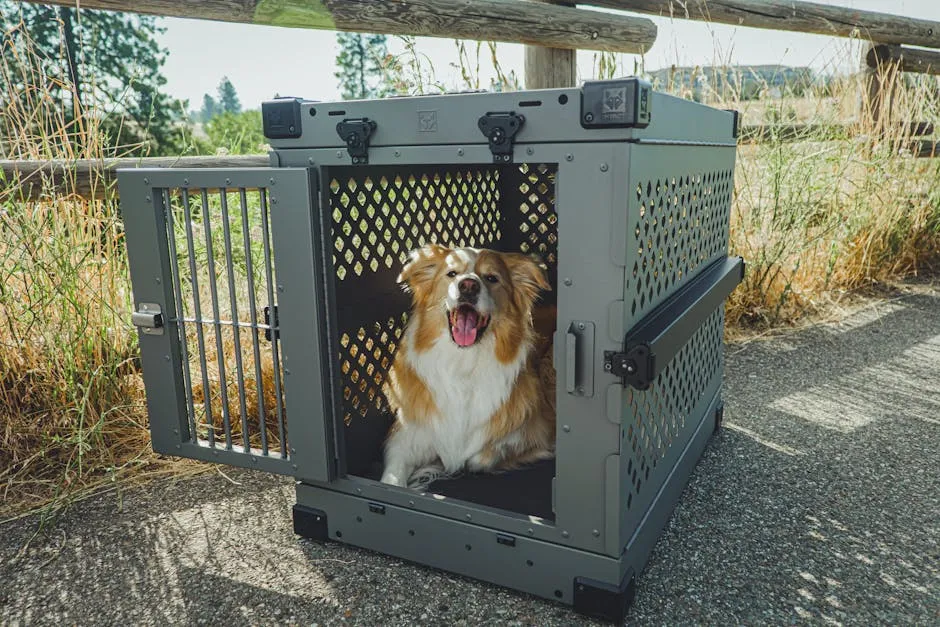
The Future: Vaccines and Research
Current Research on COVID-19 and Pets
As the world continues to grapple with the COVID-19 pandemic, scientists are hard at work investigating how the virus affects our furry companions. Research into COVID-19 in animals is ongoing, with several studies focused on how the virus spreads and its impact on pets.
Recent findings indicate that while dogs can contract COVID-19, it’s primarily through close contact with infected humans. Studies have confirmed positive cases in dogs, particularly those living with COVID-positive owners. In one study, about 41% of dogs tested positive for antibodies, suggesting prior exposure. However, the overall infection rates in dogs remain significantly low compared to humans.
Variants of the virus pose an interesting question for researchers. Some studies suggest that certain variants may affect pets differently. For instance, earlier strains appeared to be more transmissible among pets, while newer variants may show reduced susceptibility. This evolving landscape of the virus keeps scientists busy, as they monitor changes and potential impacts on pet populations.
Furthermore, researchers are also looking into how different species may carry and transmit the virus. Cats, for example, have shown higher infection rates than dogs, leading researchers to explore the reasons behind this disparity and whether specific breeds are more susceptible.
As this field of study progresses, it’s clear that understanding COVID-19’s effects on pets is crucial. It helps pet owners remain informed and ensures that appropriate measures are taken to protect both animals and humans. The more we know, the better equipped we are to keep our furry friends safe during this pandemic.

Vaccination for Dogs
With the rise of COVID-19 infections in both humans and pets, the question of vaccination for dogs is top of mind for many pet owners. Currently, there is no approved COVID-19 vaccine specifically for dogs. However, there are vaccines for other coronaviruses that affect dogs, such as the canine coronavirus, which is distinct from SARS-CoV-2.
Researchers are investigating the potential for developing a COVID-19 vaccine for pets. Some experimental vaccines have shown promise, particularly in laboratory settings. However, these vaccines are not yet widely available for general use.
It’s essential to stay up-to-date on the latest vaccine developments. Pet owners should consult their veterinarians for recommendations on vaccines and preventive measures for keeping dogs healthy. While the risk of severe illness in dogs remains low, vaccination could play a role in protecting pets against potential future strains of the virus.
In the meantime, practicing good hygiene and minimizing exposure to infected individuals remains the best course of action. Keeping dogs away from large gatherings and ensuring they do not interact with sick individuals will help reduce the risk of transmission.
As we navigate this pandemic, ongoing research and potential vaccines hold hope for the future. By staying informed, we can help protect our beloved pets and ensure their health and safety during these challenging times.
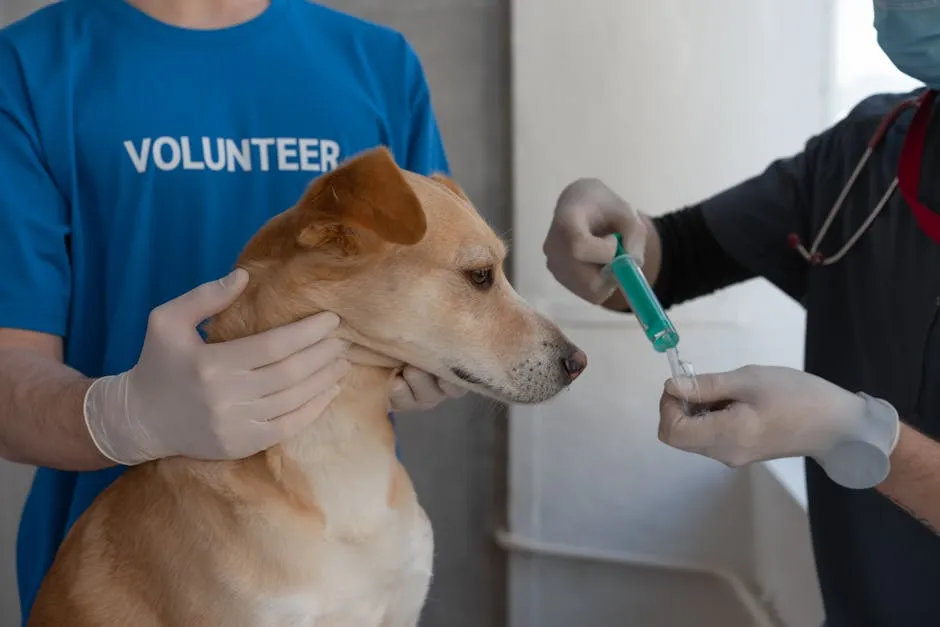
Conclusion
In conclusion, while dogs can indeed contract COVID-19, the overall risk remains low. Most cases are mild or even asymptomatic. As responsible pet owners, it’s crucial to stay vigilant. Following proper guidelines can help keep our furry friends safe. The scientific community is actively researching COVID-19’s impact on pets, gathering data to enhance our understanding. By staying informed and practicing good hygiene, we can ensure the health and safety of both humans and their beloved pets during these trying times. Remember, your dog’s well-being is a reflection of your awareness and care. So, keep those tails wagging and stay smart about pet health!
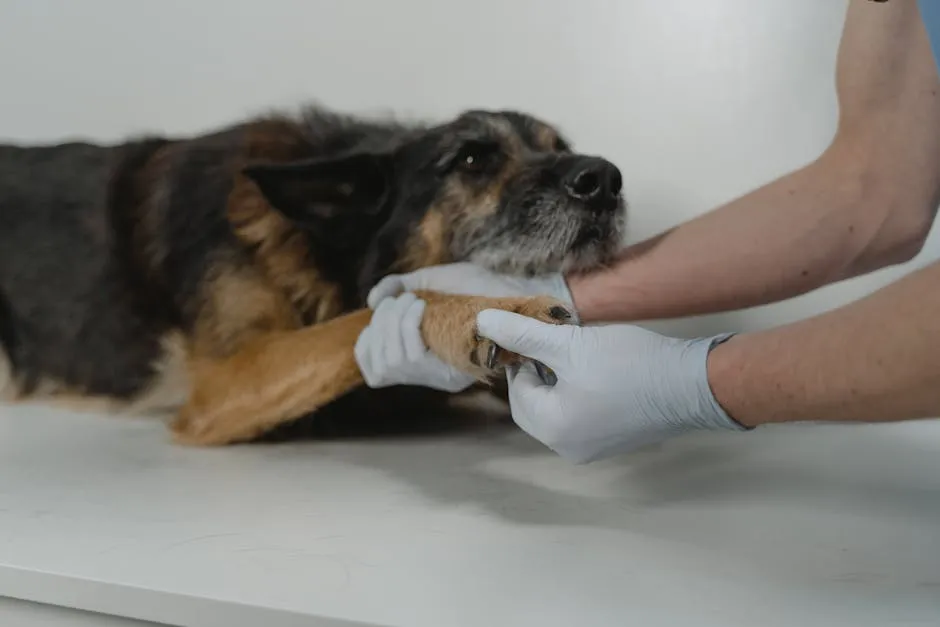
FAQs
Can my dog get COVID-19 from a human?
Yes, dogs can catch COVID-19 from humans through close contact.
What should I do if my dog shows symptoms?
If your dog exhibits symptoms, consult your veterinarian for guidance.
Is there a vaccine for dogs against COVID-19?
Currently, there is no approved COVID-19 vaccine for dogs.
Can I get COVID-19 from my dog?
The risk of transmission from dogs to humans is considered very low.
What precautions should I take if I have COVID-19?
Limit contact with your pets and follow hygiene practices to keep them safe.
As a responsible pet owner, it’s crucial to keep your dog’s health in check. One way to do this is by having a Dog First Aid Kit on hand. This kit can be a lifesaver for minor injuries and emergencies, ensuring you’re prepared for any situation that may arise!
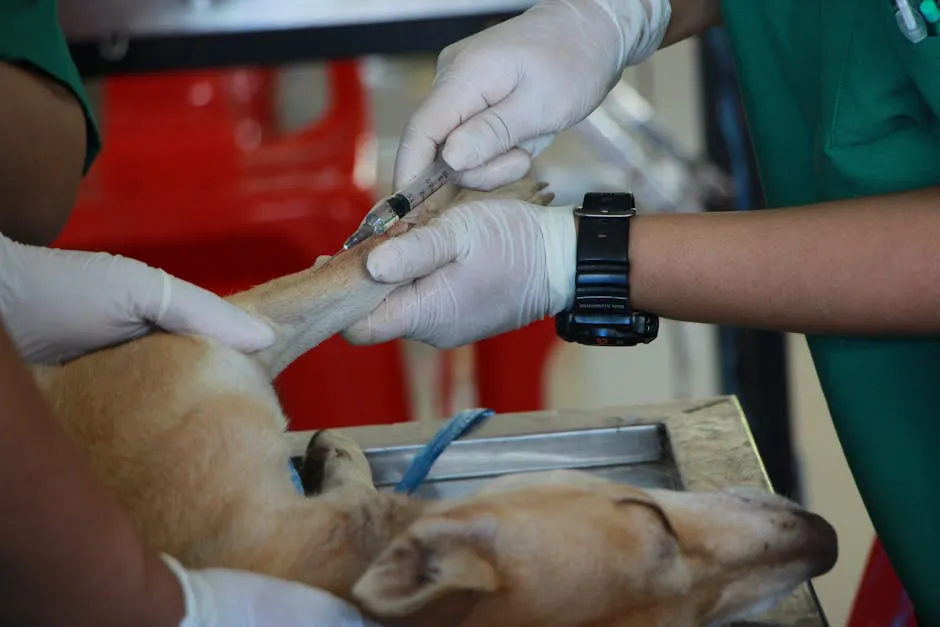
Please let us know what you think about our content by leaving a comment down below!
Thank you for reading till here 🙂
If you’re interested in understanding how to manage your dog’s health, consider checking out Understanding and managing canine arthritis symptoms for more insights.
And for those cozy nights in with your pup, consider a Dog Bed with Washable Cover. It’s perfect for those days when your dog’s idea of fun is rolling in mud before snuggling up for a nap!
All images from Pexels

